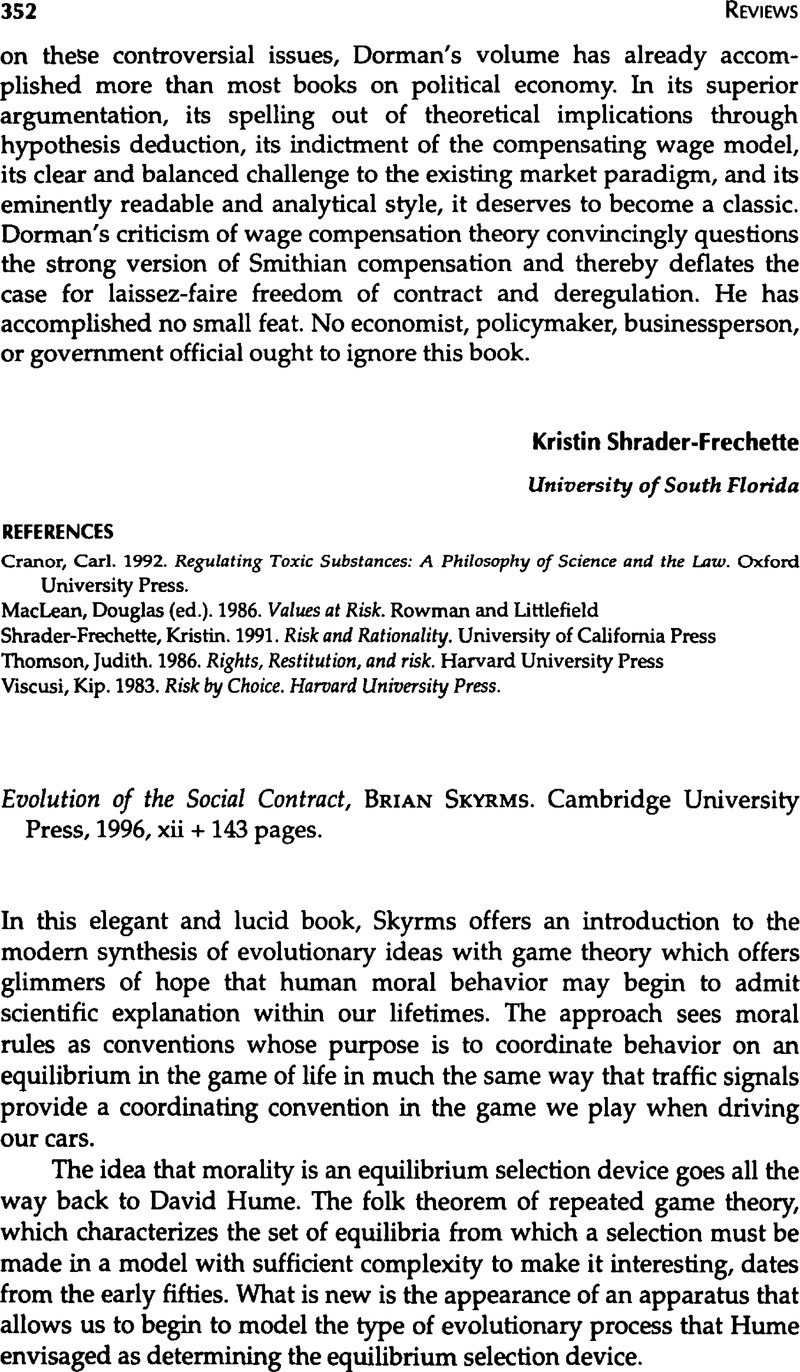No CrossRef data available.
Article contents
Evolution of the Social Contract, Brain Skyrms. Cambridge University Press, 1996, xii + 143 pages.
Published online by Cambridge University Press: 05 December 2008
Abstract
An abstract is not available for this content so a preview has been provided. Please use the Get access link above for information on how to access this content.

- Type
- Reviews
- Information
- Copyright
- Copyright © Cambridge University Press 1997
References
Bergstrom, T.. 1995. ‘On the evolution of altruistic ethical rules for siblings’. American Economic Review, 96:308–38Google Scholar
Binmore, K., Gale, J. and Samuelson, L.. 1995. ‘Learning to be imperfect the ultimatum game’, Games and Economic Behavior, 8:56–90Google Scholar
Harsanyi, J.. 1977. Rational Behaviour and Bargaining Equilibrium in Games and Social Situations. Cambridge University PressCrossRefGoogle Scholar
Mailath, G., Samuelson, L. and Shaked, A.. 1997. ‘Correlated equilibria and local interaction’. Economy Theory, 9:551–56CrossRefGoogle Scholar
Roth, A. and Erev, I.. 1995. ‘Learning in extensive-form games: experimental data and simple dynamic models in the intermediate term’. Games and Economic Behavior, 8:169–212CrossRefGoogle Scholar


